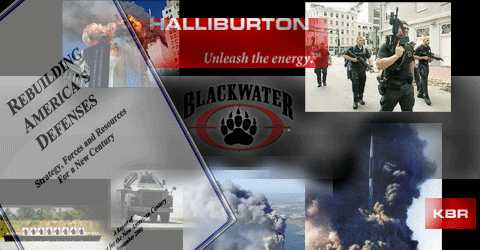In the years after 9/11, Flynt Leverett and Hillary Mann worked at the highest levels of the Bush administration as Middle East policy experts for the National Security Council. Mann conducted secret negotiations with Iran. Leverett traveled with Colin Powell and advised Condoleezza Rice. They each played crucial roles in formulating policy for the region leading up to the war in Iraq. But when they left the White House, they left with a growing sense of alarm — not only was the Bush administration headed straight for war with Iran, it had been set on this course for years. That was what people didn’t realize. It was just like Iraq, when the White House was so eager for war it couldn’t wait for the UN inspectors to leave. The steps have been many and steady and all in the same direction. And now things are getting much worse. We are getting closer and closer to the tripline, they say.
“The hard-liners are upping the pressure on the State Department,” says Leverett. “They’re basically saying, ‘You’ve been trying to engage Iran for more than a year now and what do you have to show for it? They keep building more centrifuges, they’re sending this IED stuff over into Iraq that’s killing American soldiers, the human-rights internal political situation has gotten more repressive — what the hell do you have to show for this engagement strategy?’ ”
But the engagement strategy was never serious and was designed to fail, they say. Over the last year, Rice has begun saying she would talk to “anybody, anywhere, anytime,” but not to the Iranians unless they stopped enriching uranium first. That’s not a serious approach to diplomacy, Mann says. Diplomacy is about talking to your enemies. That’s how wars are averted. You work up to the big things. And when U.S. ambassador to Iraq Ryan Crocker had his much-publicized meeting with his Iranian counterpart in Baghdad this spring, he didn’t even have permission from the White House to schedule a second meeting.
The most ominous new development is the Bush administration’s push to name the Iranian Revolutionary Guards a terrorist organization.
Read more
October 22, 2007
Categories: 9/11, Ahmadi Nejad, Iran, War party, World war III . . Author: Travellerev . Comments: Leave a comment






You must be logged in to post a comment.